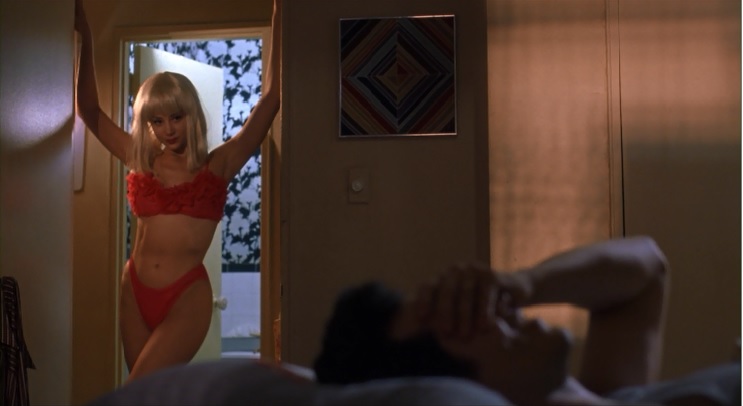
Spike Lee’s Summer Of Sam (1999) charts the effects that David Berkowitz’s reign of terror has on a community in the Bronx. Lee weaves together a number of narratives as characters enter and exit each other’s lives. In the midst of this tapestry characters are connected by more than just their interpersonal interactions, but by the collective memory of the city. Lee intercuts inserts from old television broadcasts and even some original dreamy, Cocteau inspired imagery so that the film transcends itself, becoming a portrait of a culture as much as it is a portrait of community.
Summer Of Sam continued Lee’s interest in insular communities but opened up the narrative, formally and dramatically, to be more inclusive and immersive. Do The Right Thing (1989) took place on one block, Clockers (1996) focused on one housing project and Crooklyn (1994) encompassed one Brooklyn enclave, but Summer Of Sam takes in all of the Bronx and even establishes it in the context of the wider metropolitan complex to reinforce the notion that each borough is its own distinct world.
As with so many Spike Lee films the key interest is in how a community copes with some sort of disaster or trauma. In Summer Of Sam the characters turn on each other, not because of race, but because of culture. The threat that Berkowitz poses to the inhabitants of Lee’s Bronx literally eat themselves in a violent, blind panic. It feels like a uniquely American conundrum where extremes can never find a middle ground, thus resorting to violence as a catharsis for the frustration whose genesis is itself the unresolved conflict.
Summer Of Sam never gets too dark or too bleak; Lee is a master at balancing his films in this way. For every moment of violence, emotional or physical, is either a moment of poetic realism (John Leguizamo and Mira Sorvino’s dances) or campy gallows humor (I’m thinking of the moment where the dog literally talks to Berkowitz). None of these moments, nor the inserts mentioned above, feel out of place. Summer Of Sam is cut perfectly to incorporate all these elements flawlessly largely due to Lee’s unconventional and highly expressionistic camera choices. The prime example of this comes in the form of the Baba O’Riley montage about halfway through Summer Of Sam.
Now I know Summer Of Sam isn’t popularly considered one of Lee’s great pictures, but I must beg to differ. It’s just as good a study of a community in conflict as Do The Right Thing but with far more aesthetic flourishes as well as a more mature approach to montage. Cinephiles always talk about what are the “great New York films” on the East coast, and I would easily submit Summer Of Sam as one of those films. It’s a beautiful, thought provoking mess of a movie that must be seen.
